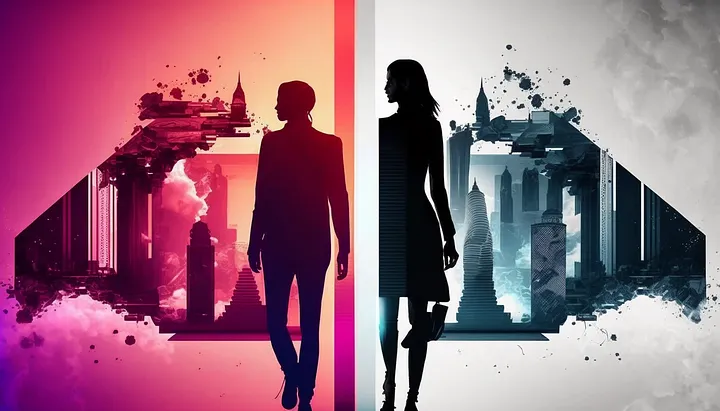When men realized their part in procreation, it was the beginning of Human Resources.
To this day, women and children are often merely seen as that. Resources.
Around the world, women are still mostly considered second level humans, and the focus with children is not to educate them to become individuals, rather they are instructed to become cogs in the machine.
The level of development of a society can be measured by how we treat women and children.
To create a planetary society, we need to focus on individuals, no matter what equipment they might have in their pants (or who they like to do with it). We need to understand that while there are archetypal principles of masculine and feminine, they live in each of us, regardless of our biological expression.
As we are growing together as a planetary species of humans, we get to design our new operating systems for individuals independent of gender.
This is not a new idea. Since 1948 we have had a universal declaration of human rights:
“Article 1: All human beings are born free and equal in dignity and rights. They are endowed with reason and conscience and should act towards one another in a spirit of brotherhood.”
Good start — obviously “should” and the “brotherhood” part needs some adjustment.
“Article 2: Everyone is entitled to all the rights and freedoms set forth in this Declaration, without distinction of any kind, such as race, color, sex, language, religion, political or other opinion, national or social origin, property, birth or other status.”
This could have solved the situation.
“Article 16:
Men and women of full age, without any limitation due to race, nationality or religion, have the right to marry and to found a family. They are entitled to equal rights as to marriage, during marriage and at its dissolution.
Marriage shall be entered into only with the free and full consent of the intending spouses.”
Also not necessarily the case in many countries of the world that signed this declaration (take, e.g. India, Afghanistan or Pakistan where to this day it is common to have arranged marriages).
“Article 23:
Everyone has the right to work, to free choice of employment, to just and favorable conditions of work and to protection against unemployment.
Everyone, without any discrimination, has the right to equal pay for equal work.”
The pay gender gap, while slowly beginning to change, is still far from what it should be. In Germany it has been stable for the last three years at 18% (meaning in average women make 18% less than men for the same work). At least there are signs of it changing by generation in some countries: e.g. in the US, while overall having been stable around a median of 18% for the last two decades, the younger generation, at least is only at around 8%.
“Article 25:
Motherhood and childhood are entitled to special care and assistance. All children, whether born in or out of wedlock, shall enjoy the same social protection.”
Yet, even in wealthy countries like Germany 43% of single parents are close to poverty — 88% of those being single mothers.
“Article 26:
Everyone has the right to education. Education shall be free, at least in the elementary and fundamental stages. Elementary education shall be compulsory. Technical and professional education shall be made generally available and higher education shall be equally accessible to all on the basis of merit.
Education shall be directed to the full development of the human personality and to the strengthening of respect for human rights and fundamental freedoms.”
Even countries like Afghanistan, Iran, Pakistan, where to this day, women and girls are kept from education had signed this.
The charter of human rights was unfortunately lacking legal authority. In 1976, International Covenant on Civil and Political Rights was meant to address this. A slimmed down version of the original charter, it had 74 signatories, again including some of the countries mentioned above who are to this day in violation of this covenant.
So there is much work to do. In the least to become compliant with the agreements we have already made.
One day, we shall have a planetary society of individuals. Until then, let’s pay special attention to supporting women. After all, they are harbingers of our future, and how we treat them determines our future success as a species as a whole.
Happy women’s day 2023.





